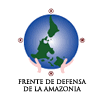Chevron's Ecuador Fraud Highlighted In Memo Ordering Destruction of Documents Related to Contamination
Key Chevron Official Ordered Personnel To Destroy Documents Relating to Pollution

Amazon Defense Coalition
14 December 2011 - FOR IMMEDIATE RELEASE
Contact: Karen Hinton at +1.703.798.3109
Quito, Ecuador – Chevron officials ordered the destruction of key documents as part of a broad scheme to hide the extent of the company's pollution in Ecuador's Amazon, a new document reveals.
A company memorandum from Ecuador dated July 1972 ordered that all reports related to oil spills "are to be removed from the Field and Division offices and destroyed." From 1964 to 1990, Chevron operated a large concession in Ecuador's Amazon region that included an extensive network of pipelines, wells and separation stations.
Chevron operated in Ecuador under the Texaco brand. In February, an Ecuador court found Chevron liable for dumping billions of gallons of toxic waste into the Amazon, decimating indigenous groups and causing a spike in cancer rates.
Damages in the case, which is under appeal in Ecuador, were set at $18 billion. The extent and environmental impact of the disaster dwarfs the size of the BP spill in the Gulf of Mexico, according to experts.
The memo ordering the destruction of documents was written by R.C. Shields, at the time the director of production in Latin American for Texaco and Chairman of the company's Ecuador subsidiary. The memo directs Chevron personnel to report only oil spills that are "major events" which are defined as those that "attract the attention of press and/or regulatory authorities."
The directive also orders that no reports are to be kept on a "routine basis."
Texaco reportedly caused hundreds of oil spills in Ecuador, many of which were "remediated" by setting them on fire, according to the book Amazon Crude, which was published in 1989 and which documented Texaco's substandard operational practices. The company also has admitted to pouring sludge from the waste pits along dirt roads.
The Shields memo ordering the destruction of documents infuriated members of the legal team representing 30,000 Amazon residents who are suing the oil giant.
"This memo is a vivid illustration of the culture of deceit that characterizes Chevron's destruction of Ecuador's Amazon over a period of decades," said Pablo Fajardo, the lead Ecuadorian lawyer. "Deception remains the operating principle for Chevron in Ecuador even today as the company continues to flout its legal obligations to remediate toxic pollution that threatens thousands of innocent lives."
Karen Hinton, the U.S. spokesperson for the Ecuadorians, said the memo was part of a "pattern of corrupt activities" by the company that include a fraudulent remediation in the 1990s, the fabrication of scientific evidence, attempted entrapment of a trial judge and threats to put judges in jail if they didn't rule in the company's favor .
"Chevron acted like the Mafia in Ecuador," she added. "This repugnant memo is just a small piece of the company's scheme to defraud Ecuador's government and its people."